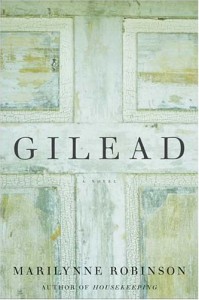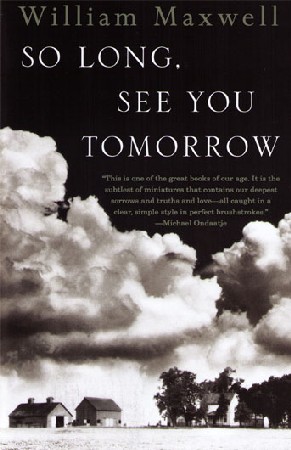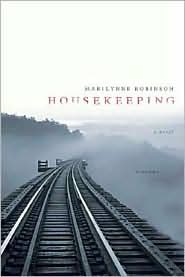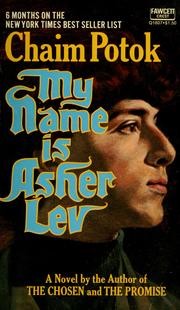Gilead
 Marilynne Robinson’s Pulitzer-prize winning Gilead is slow-moving. I concede that much to the one-star review folks over at Amazon. Comprised of a 77-year-old pastor’s letter to his 7-year-old son, it meanders. It proceeds like the tide, surging and receding and resurging, revisiting the same subjects, and none of them are the stuff of an adventure novel. Reverend John Ames, now in failing health, has lived in Gilead, Iowa his whole life, and he writes with the perspective of a man who had been paying close attention to the place, and to his inward life in the place, for many years. You might say he’s panning for gold — sifting the sand of his life through his fingers, looking for nuggets to harvest for the son who will never have the opportunity to know him.
Marilynne Robinson’s Pulitzer-prize winning Gilead is slow-moving. I concede that much to the one-star review folks over at Amazon. Comprised of a 77-year-old pastor’s letter to his 7-year-old son, it meanders. It proceeds like the tide, surging and receding and resurging, revisiting the same subjects, and none of them are the stuff of an adventure novel. Reverend John Ames, now in failing health, has lived in Gilead, Iowa his whole life, and he writes with the perspective of a man who had been paying close attention to the place, and to his inward life in the place, for many years. You might say he’s panning for gold — sifting the sand of his life through his fingers, looking for nuggets to harvest for the son who will never have the opportunity to know him.
In my opinion, he finds the gold.
Even those who find the novel dull concede its beautiful language. Rev. Ames is someone who quickly distinguishes himself as a precise, reflective, insightful man. I despair of quoting any passages at all because I have no idea how I would choose. But beauty of expression wouldn’t have held me if there was no substance.
Gilead in the Bible refers to several people and places, but the word means “mound of witness.” The things Rev. Ames has lived through and struggled with are the stuff of ordinary life. His heritage as a third-generation preacher. The tensions among him and his father, a committed pacifist, and his grandfather, a fiery and controversial figure in the Abolitionist movement. The death of his first wife and child, and the gift of his second, much younger wife late in life. Long friendship with his friend Boughton, a Presbyterian minister. Long struggle to overcome resentment against ne’er-do-well Jack Boughton, his “god son” of sorts.
He writes in order to tell his 7-year-old son, who he envisions reading the letter as a grown man, the things he would tell him if he were able to be there all his life. His heart is failing, and he knows he doesn’t have long. But his letter tells the story not just of life already lived, but of the grace and forgiveness still unfolding. He does attain to a measure of victory over the struggles he strives to report honestly.
I came to feel great affection and respect for this elderly gentleman who has loved God and loved his life. I won’t say it’s an “exciting” book; it’s definitely more bildungsroman than adventure novel. In a way, it was because of this that the power of the story stole up on me when I wasn’t really expecting it. I was politely interested in the details Rev. Ames wanted to talk about, but somewhere along the line I became involved unawares, and found the tears standing in my eyes more than once.
Of course it’s impossible not to think of the old spiritual “There Is a Balm in Gilead” while reading. There is a deep comfort I took from reading this, even though it requires patience.
*Edited to add: Here is an interesting interview where Marilynne Robinson talks about Gilead. (I find the interviewer’s questions to be as self-revealing as Ms. Robinson’s answers.)


